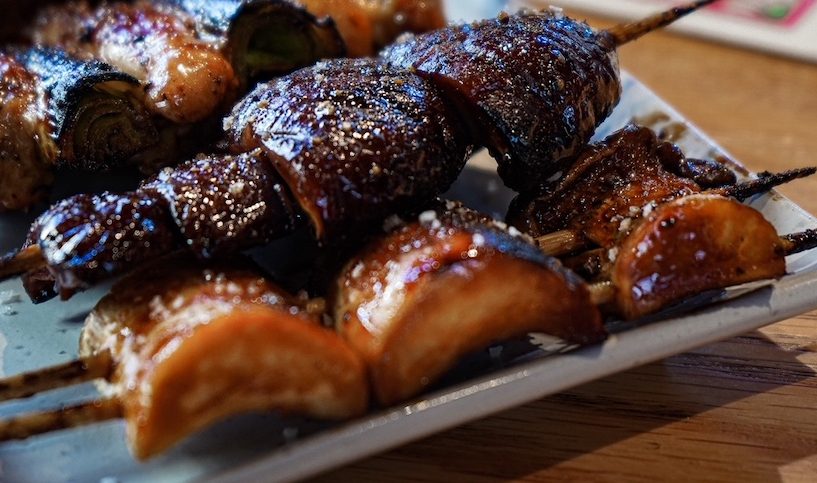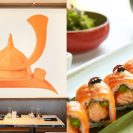Bonjiri is the second tasty shack to house local chef Maryam “Mimi” Al Nusif’s passions for food, culture and clean, sustainable cooking. Mimi’s main objective and contribution to the people of Kuwait is to expose them to different cultures, specifically that of unwatered down, unadulterated and non-touristic Japanese yakitori.
“I love Japan. I love its food, I love its people. Their art, their culture, their manners… I suppose this is how I became passionate about learning how to cook and prepare Japanese food.” This she did by opening up her first independent ramen shop, Tampopo Ramenshop. The sister concept to Bonjiri, serving up chicken and duck yakitori delights.
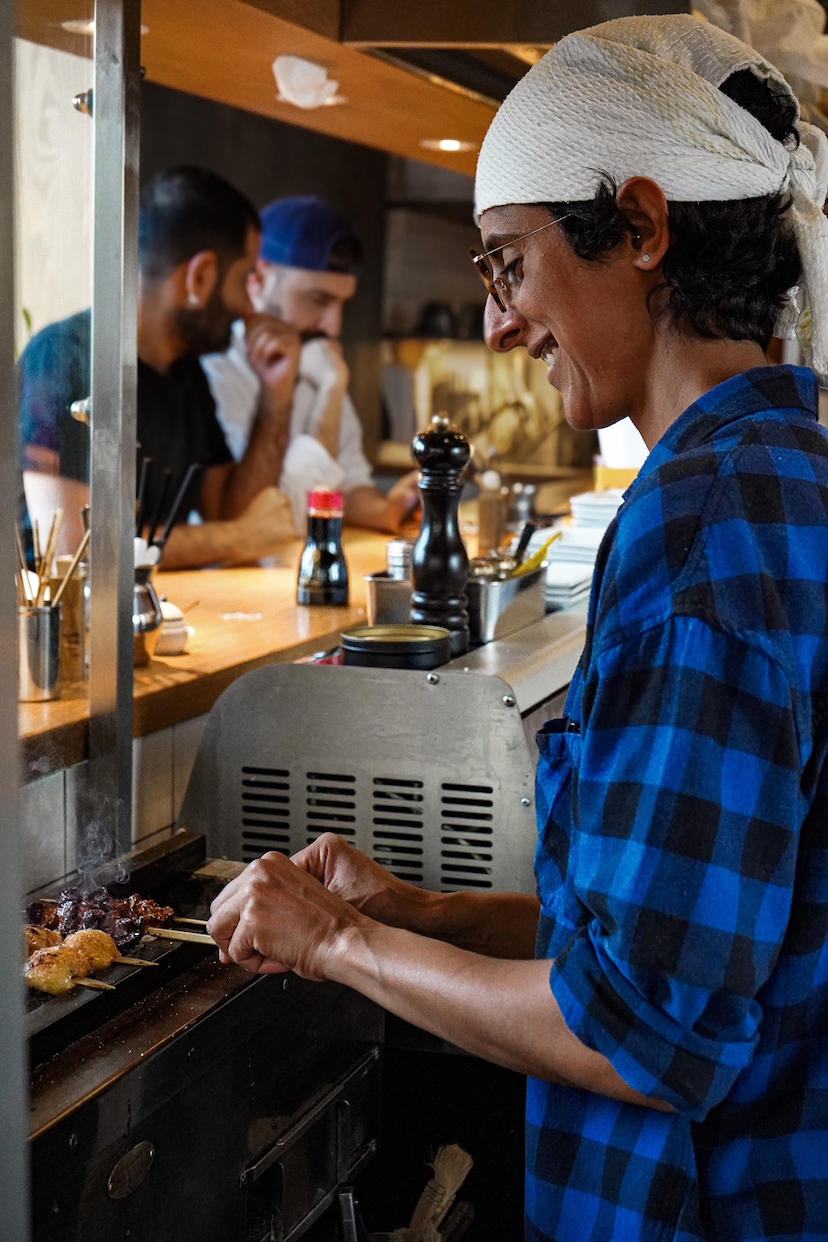
The term “yakitori” roughly translates to “grilled (yaki) bird (tori)” as Mimi explained to us, demonstrating how to skewer a chicken using every part of the bird so that nothing goes to waste. The effort is showcased behind a glass enclosure separating the diners from the friendly, well-versed staff who grill up bite-sized yakitori skewers to serve alongside buttered rice and delectable tare.
What is tare, you ask? We wondered the same thing, as we watched the grill masters baste various menu items with this gorgeously seasoned sauce, which Mimi told us has been collecting flavor from the very first skewer that was cooked on the grill. She calls this “rolling aged tare”, explaining how re-using the tare delivers ultimate umami, as well as an authentic experience since aged tare is quintessential to traditional yakitori. We hungrily watch the flavor drip onto the skewers, and when we’re finally able to sink our teeth into this style of cooking, the earned umami is indeed palatable. Believe us when you say that trying tare will make you leave Bonjiri wanting to put tare on everything you eat in your life. Tare potatoes. Tare fish. Tare chips. Need we go on?
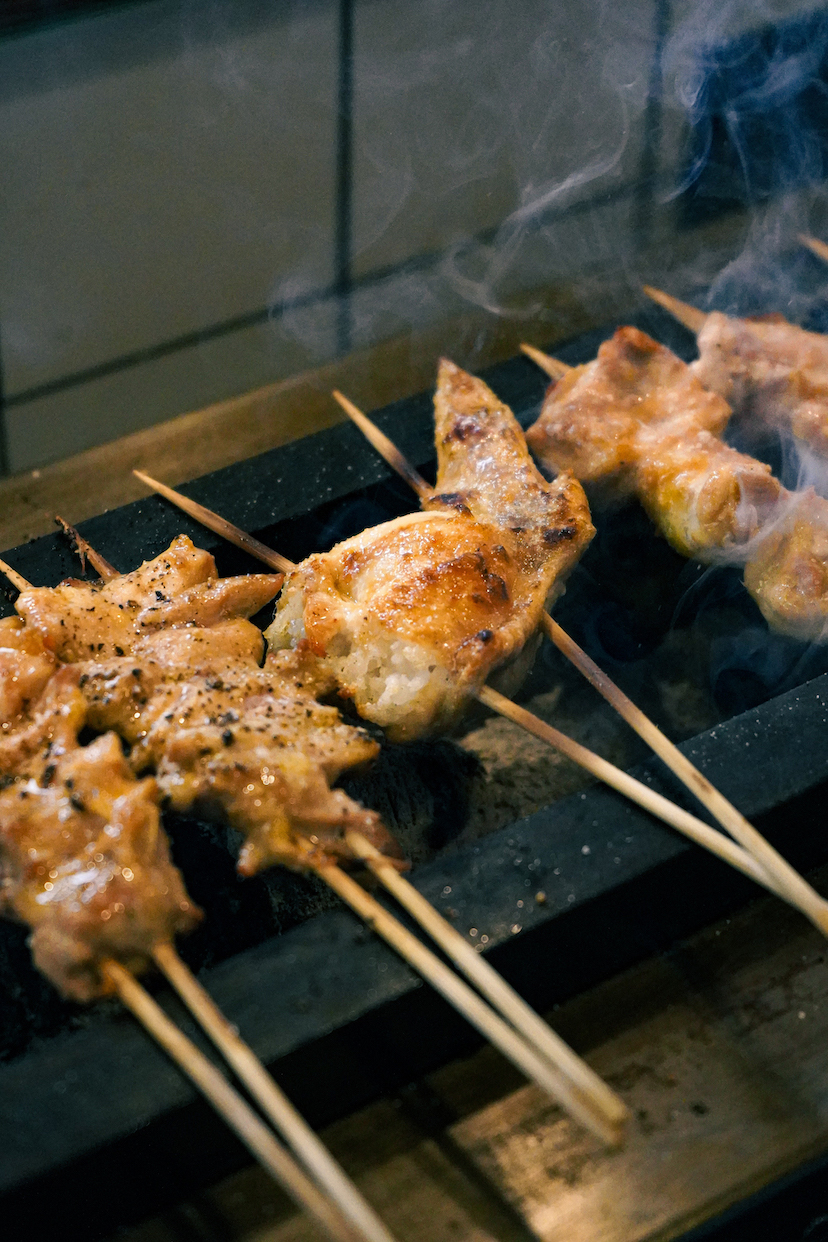
Bonjiri’s menu is simple yet flavor-packed, offering an experience that leaves little room to veer back into a ‘comfort’ zone. But the menu does have different sections of skewers, dividing the proteins among levels of bravery, if you may. Those who are squeamish might opt to stick to plain chicken and duck breasts in the beginning, but may find themselves wandering over to the far right hand side of the menu, where the bold skewers live in forms of knee cartilage, chicken tail, heart, liver and skin. At 1.75KD a skewer (with the exception of the truly exceptional Tsukune chicken and duck meatball skewer which sits at KWD 2.50 per serving) there’s room to play and work your way up to a bolder palate.
Before we discuss how succulent and smoky the tender chicken and duck breasts were, we need to talk about the Tsukune. Delectable and cooked to per fection, ever y morsel of the meatball was satisfying and filled with flavor. When paired with the egg yolk dipping “sauce” served with the meatball, the result was heaven. Just mix up the yolk and the sauce it’s swimming in to turn it into a rich, light brown custardy dipping sauce that brings the whole dish together.
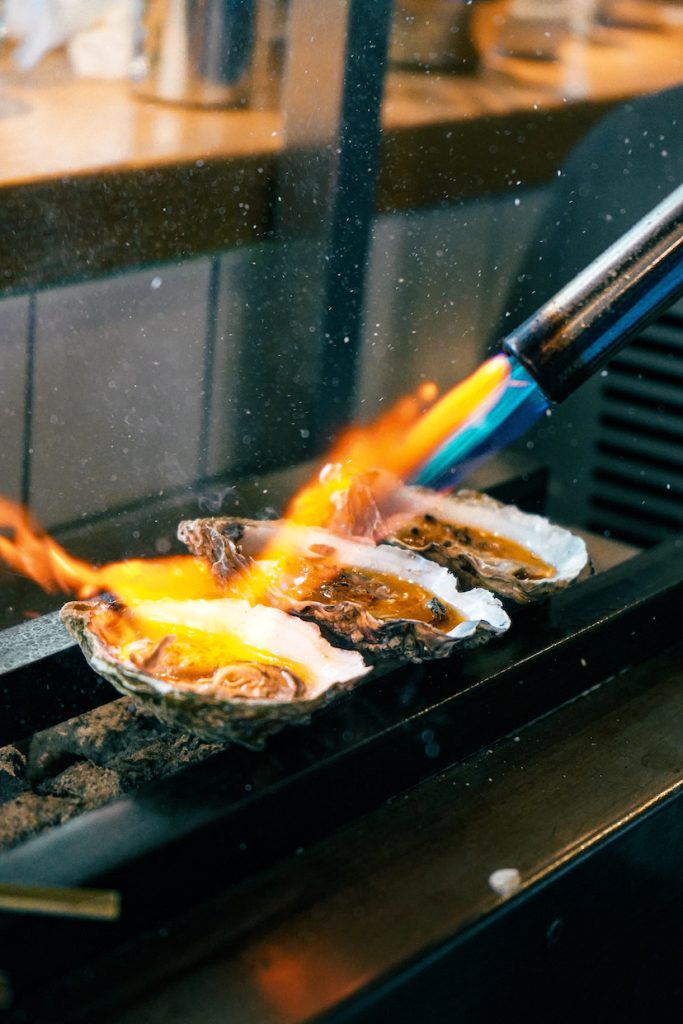
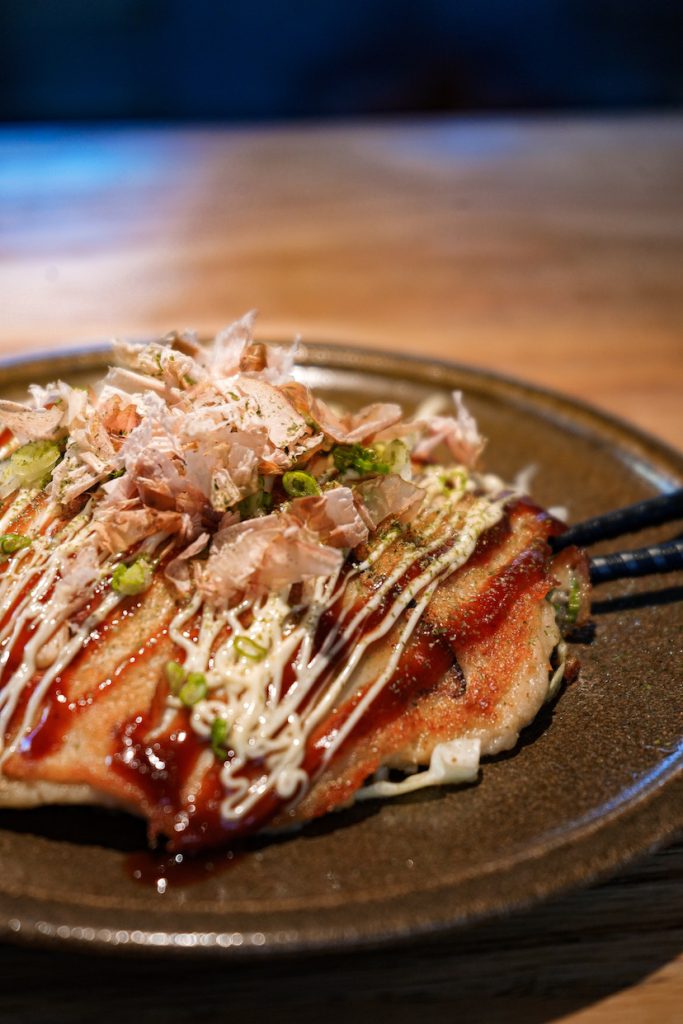
As for the duck, quality shines through in the way the meat was selected and cooked. Mimi exclusively uses local duck that’s brought in weekly from Alsaada Farm, and is proud to report most of the duck, including its organs is utilized in her skewers in order to stay true to the yakitori experience. Though poultr y isn’t necessarily my protein of choice, I tend to enjoy duck since its dark meat makes me feel as though I’m eating lamb. But Bonjiri’s take on duck does not need to be masked for even the most finicky of eaters, because it will absolutely melt in your mouth. The flavors were so pleasing, as well as the texture, that beef and seafood were not missed. In fact, the only seafood that makes an appearance on the menu is a fire-smoked oyster served as a small plate and whatever locally caught wild fish such as sheem whenever it’s available to put on the specials menu. We weren’t able to try the fish during our visit, but if Mimi can do to fish what she can to chicken and duck, then we’re all in!
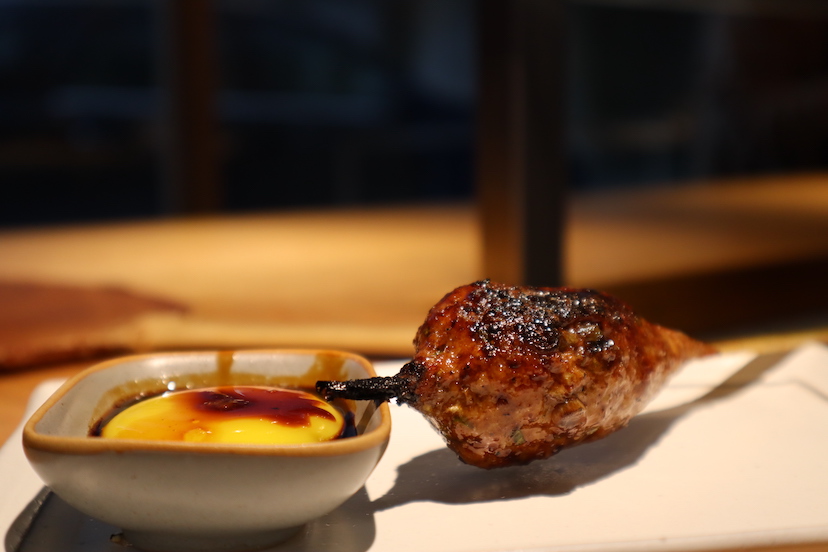
Alongside the various yakitori offerings and small plates is a constantly evolving specials menu. Bonjiri’s specials are always changing according to whatever ingredients Mimi can get her hands on, staying true to her ethos of clean and sustainable cooking. But one special that makes a fairly regular rotation on the menu is the truly stellar Okonomiyaki: a Japanese
cabbage based pancake with different fillings like noodles and mushroom, drizzled with sauces like Japanese mayo and topped with flakes of smoked tuna that dance for you when they come into contact with heat. It’s a total crowd pleaser and only whets your appetite to want to dive into other offerings on Bonjiri’s menu. From grilled veggie skewers to udon noodles, you are still spoilt for choice although the menu isn’t grandiose and veers more towards the simple more traditional side.
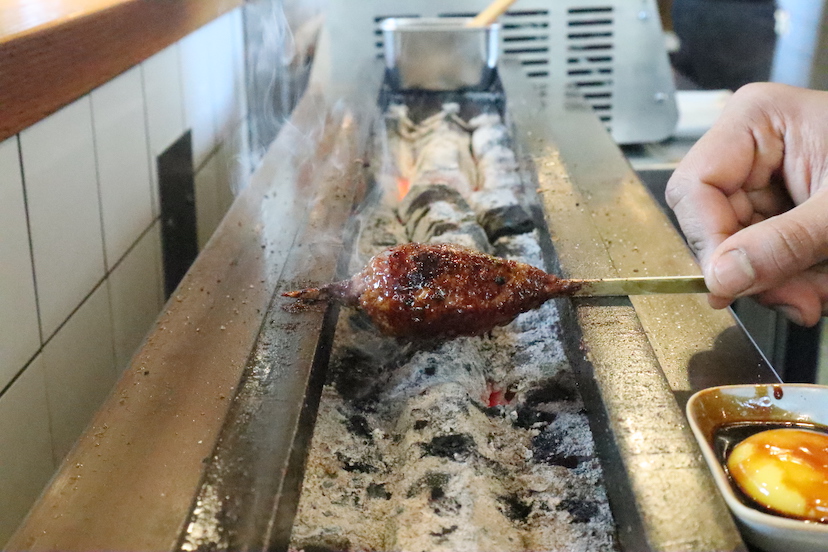
For a sweet ending to Bonjiri’s thoughtful menu, Chef Mimi has included an Eton Mess: a nod to Japan’s appreciation of the layered dessert, along with the pivotal role that British culture has played in Mimi’s life. Homemade crumbled meringue and bits of ginger, strawberry coulis and hand-whipped cream. The flavors are so refreshing between yuzu and strawberry notes, and the crunch of the meringue gives it the satisfying factor of a truly multifaceted dessert. The Eton Mess has a layer of taste with every bite, giving you hints of so many different pleasant flavors. Pair it with a cup of Jasmine green while sitting in their little terrace adorned with little crate seats and small tables and you have yourself the formula to a successful Bonjiri experience.
Bonjiri is open again for lunch and dinner on Sun, Mon, Tues and Wed, from 3-9 pm. Get the details by following them on Instagram @bonjiri.yakitori.



